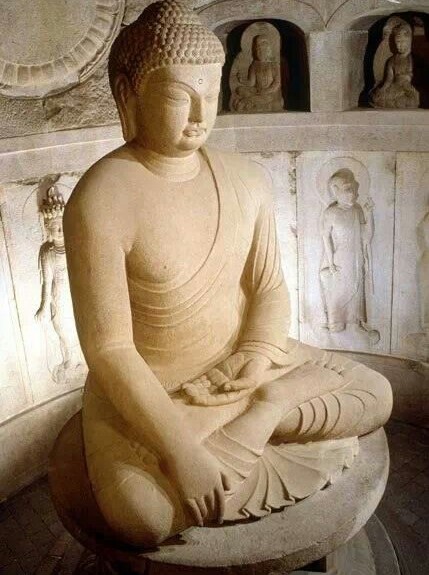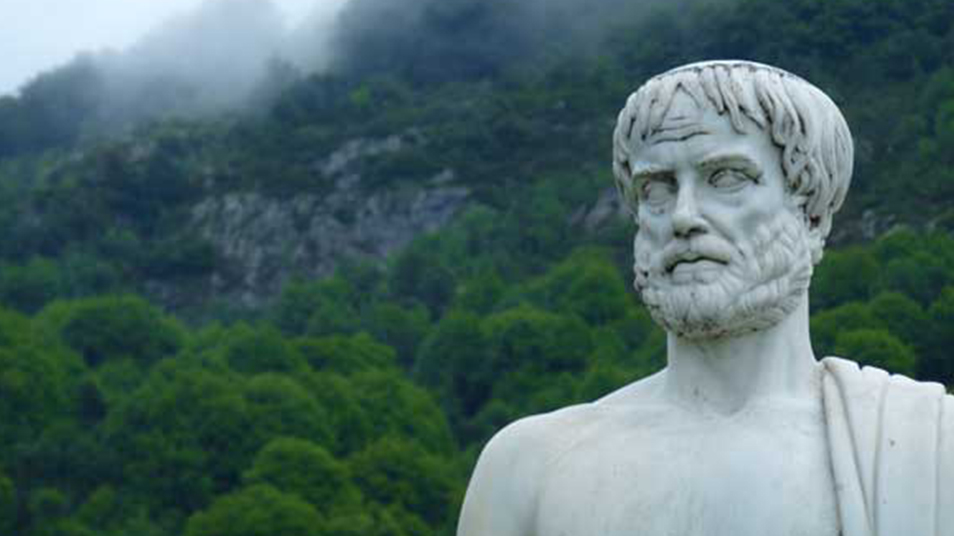When academic philosophers start quoting Aristotle in the mainstream media, you know Western philosophy is spiritually and intellectually bankrupt. They’re making conceited claims such as, “There is an insight in the self-help slogan ‘living in the present’ that philosophy can redeem.”
 Until about a generation ago, there were at least two distinct streams in the human mind. Both had their genesis about the same time—the Western mind in ancient Greece, and the Eastern mind in ancient India.
Until about a generation ago, there were at least two distinct streams in the human mind. Both had their genesis about the same time—the Western mind in ancient Greece, and the Eastern mind in ancient India.
In the last twenty or thirty years, the Western mind has overtaken the Eastern mind. Now there’s just the Western mind gone defectively global, though many people, West and East, like to believe that there is still a real difference.
The Western mind, which Aristotle more than any other philosopher poured the foundation for, has been externally minded, materialistic, and individual-oriented. The Eastern mind was inwardly oriented, mystical and universal.
One of the great ironies of history is that the individualists of the West produced a universalist political philosophy (and to some degree political system), with its tenets of human rights, rule of law, freedom of speech, etc. In recent years however, the faulty foundation of the ephemeral “international community” has degenerated into obsessions with localism and particularism.
The Greek underpinnings of the Western mind can be glimpsed in this quote from Aristotle: “For we choose happiness for itself, and never with a view toward anything further; whereas we choose honor, pleasure, intellect…because we believe that through them we shall be made happy.”
Note the dubious premise that “we choose happiness never with a view toward anything further.” Is that true? Aren’t the greedy happy as long as they can endlessly acquire more?
Moreover, the ‘greed is good’ belief, central to the American way of life, pertains not only to individuals (and corporations given personhood), but also to the acquisition of experiences, which is generally seen as a virtue.
Note also the psychological falsehood that is the cornerstone of individualism and consumerism: “We choose.”
No, we don’t. There is no freedom in choosing, only enslavement to one’s past, one’s conditioning, and one’s culture. There are choices, to be sure, but the chooser is always confused and distorted.
Another ancient Greek philosopher, Socrates, who had to be killed with hemlock lest his way of thinking prevail, showed that when we are clear, we don’t choose; we act.
Haven’t you noticed that if you have a strong insight into something, you simultaneously see what to do and do it? That points the way ahead.
It defines the core difference between the Western mind that has dead-ended, and the emergent, genuinely global mind. The Western mind splits idea from action, and places the chooser between. The whole mind sees that insight and action is one thing, and that to choose is to confuse.
The Western mind led to the emergence and eventual explosion of science and technology. Previously, externalization led to the great explorations of vast oceans and unknown lands, and the promise of the New World. But compulsive externality has collapsed into nihilistic emptiness.
Even the materialism essential to science has produced a scientism strangely symbiotic with ignorance. And rugged individualism has devolved into wimpy narcissism.
Finally, man’s decimation (and worse, since that word literally means killing one in ten, and man is in the process of extinguishing one in two species of animals and plants) on earth is largely the product of the Western mind.
The Eastern mind is faring no better. Buddhists are slaughtering Rohinga Muslims in Myanmar, while a former darling of international activism, Nobel Peace Prize winner Daw Aung San Suu Kyi (now the leader of that country after 15 years of house arrest), acts as apologist for the ethnic cleansing.
The widespread transplantation of Buddhism to the West has not halted, and indeed seems to have abetted the character and cultural erosion. And now America has a blatantly evil and openly autocratic government.
The key in the present is to turn inward in the way that once infused the Eastern mind with insight (though now without tradition, which humankind has moved beyond), while keeping the outward advances of science and technology going.
That requires a global creative explosion. Can it ignite within us now? If you say no, get the hell out of the way.
Martin LeFevre

